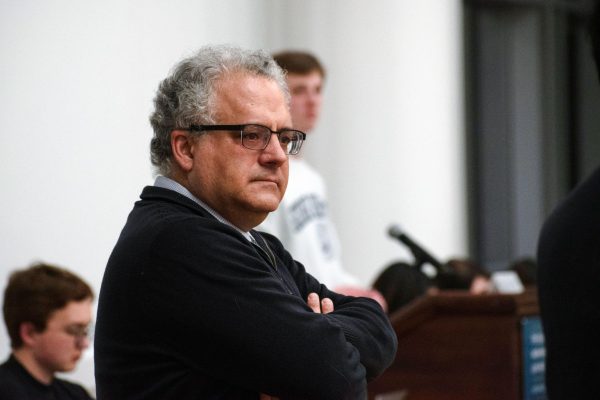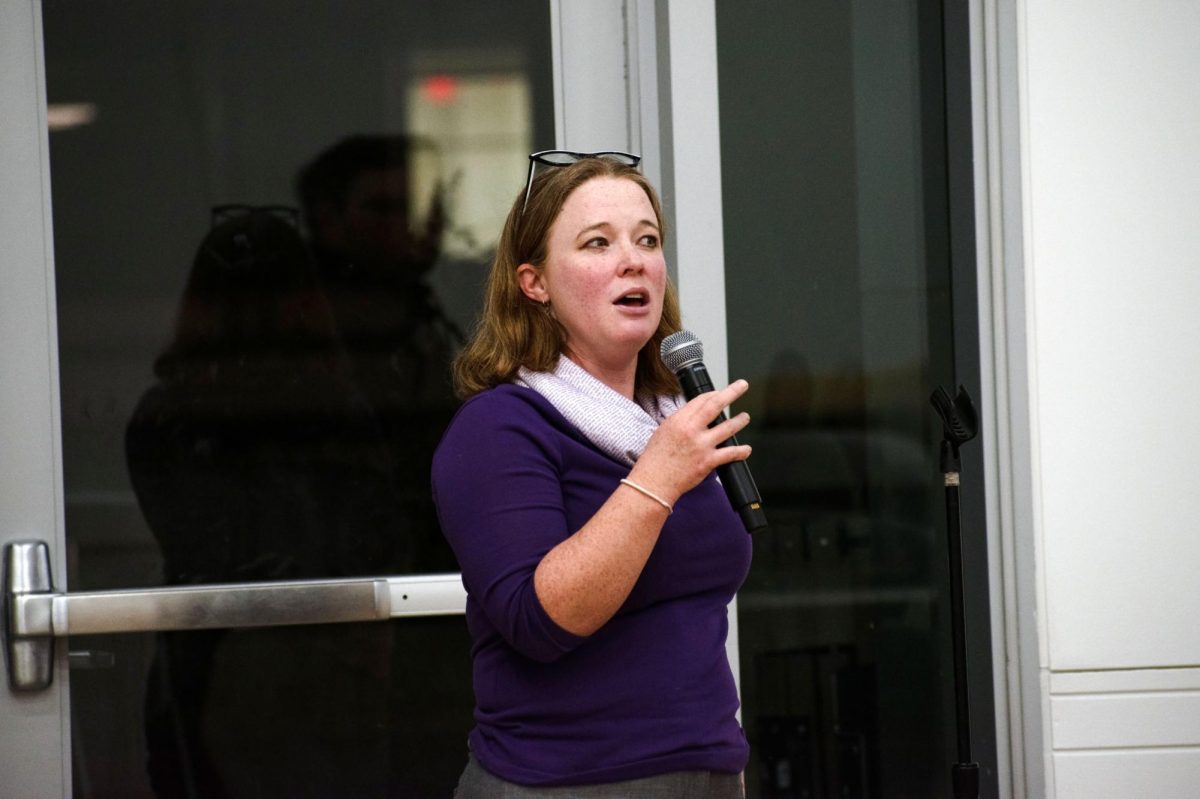Updated: Feb. 14, 2025, at 4:23 p.m.
The Student Government Association Senate unanimously approved legislation to extend the campaign timeline for the upcoming election and voted to extend changes to the Code of Academic Integrity during a meeting Monday.
The SGA Senate unanimously passed the Election Timeline Adjustment Act, which will shift the current election date from March to April to avoid conflicts with spring break and final exams. Michael Ubis, the chair for the Joint Elections Commission, said moving the election date to April is a “popular” choice for candidates and voters.
“I believe that as an independent regulatory agency, the JEC should be empowered to set election day following a robust public comment process, without regards to arbitrary deadlines,” Ubis said.
Christy Anthony, the director of Conflict Education and Student Accountability, proposed a resolution to the SGA Senate to extend the addendum that the SGA passed last year to allow the office to collect more data about the effectiveness of a three-member panel and provide an update to the body again next year. The SGA approved the resolution by unanimous consent.
The changes, initially proposed by the Office of Student Rights and Responsibilities last year to address delays with student conduct hearings, reduce the size of student conduct panels from five total members to three.
Anthony said the data they received over the course of the year was “inconclusive” regarding whether or not a three-member panel was more effective in resolving student disciplinary cases in a timely manner, leading the office to seek approval from the SGA and Faculty Senate to extend the research timeline.
Demetrius Apostolis, the executive director of the annual Career Exploration Expo, said this year’s event will be held on Feb. 28 and consist of seven activities, including panels about people with disabilities and international students in the workforce. He said the Expo will also host events like resume workshops in collaboration with the GW Center for Career Services in the week leading up to the event.
Apostolis said the SGA Mental Health Assembly will attend the expo to help any nervous students after he heard reports of some students experiencing panic attacks at last year’s expo because of the stress of speaking to employers. He said free professional clothing will be offered by The Loop, GW’s free clothing exchange store located on the Vern. Apostolis said he expects this year’s attendance to surpass last year’s participation of about 1,100 students.
“We’re looking for at least 2,500 students, and we already have over 1,600 students registered so making progress there,” Apostolis said.
SGA President Ethan Fitzgerald said he will create a “student events committee” in collaboration with GW Campus Living and Residential Education and the Office of Student Life that will “increase the energy” on campus. He said the committee, which will include four members of the SGA, two Program Board members, two members from the Residence Hall Association and two members from the general student body, will work to “improve” the student experience by planning school-wide events for the student body.
Fitzgerald said he will propose bylaw changes to engrave the committee into the SGA bylaws at a future meeting.
Suresh Subramaniam, the vice provost for graduate and postdoctoral affairs, and Dr. Jeffrey Brand, the associate provost for undergraduate affairs and special programs, presented to the body about their respective offices and opportunities for student support.
Subramaniam said the Office of Graduate Affairs and Office of Graduate Student Assistantships and Fellowships can work with students to secure research funding opportunities and hosts events, like the three-minute thesis competition — a competition where doctorate students explain their theses and research in three minutes — and activities during Graduate and Professional Student Appreciation Week.
“On the graduate side of things, it’s extremely important for students to exchange different perspectives, students from different disciplines talking to each other,” Subramaniam said.
Subramaniam said the future of funding from the National Institutes of Health is “unknown” after GW, among other universities, sued NIH following President Donald Trump’s executive order to lower funding. GW joined the lawsuit Monday after the NIH decision last week to establish a 15 percent cap on “indirect funding” covered by grants.
“We are hoping that it will not stick, and we will be able to support the research, as we have been doing over the last 15 years or more,” Subramaniam said. “If that changes, I don’t know, I don’t want to say yet. It’s bad news for everyone, it’s bad news for the university, it’s bad news for the country.”
Brand said the most “satisfying” part of his job is helping students navigate the “bureaucracy” at GW. Brand said his office is starting to work on policies about whether professors can use ChatGPT to grade students’ papers.

SGA senators also confirmed junior Mashal Sohani as director of legislative affairs as well as Dila Arat, Mollie Carey, Jennifer Moon, Erika Cole and Liliana Triviski to legislative advisor positions across the SGA senate’s committees.
Maya Renteria, the director of the SGA Legislative Budget Office, shared the student organization finance training presentation with the body, which instructs organizations on how to request funding under the event-based structure starting next fall. She said student organizations have been receiving the same presentations at the mandatory finance trainings the SGA began last month.
Last spring, the SGA passed the Financial Transparency Act to restructure the current general allocations system, a semiannual process, to an event-based funding model where student organizations can request funding on a weekly basis for events throughout the year.
Renteria said she wanted to emphasize the fact that everyone working in the LBO are students too and that she will not tolerate any disrespect from student organizations toward her staff throughout the upcoming allocations processes, which she said has happened in previous allocation cycles.
“We’ve had it happen, we’ve had really offensive comments made,” Renteria said. “So if you hear someone say that, or if you say it yourself, one, please don’t, but also please try and shut down those conversations because we are trying to do the best that we possibly can.”
The Senate then went into executive session for a period of 15 minutes.
The SGA will hold their next meeting Feb. 24 in the University Student Center Grand Ballroom at 8 p.m.
This post has been updated to correct the following:
The Hatchet incorrectly reported that the Office of Student Rights and Responsibilities voted to drop the panel requirement for low-level sanctions last spring. Officials considered dropping the requirement, but only voted to reduce the number of panelists. A prior version of this post also stated that the SGA voted to extend changes to the Code of Student Conduct. The body voted to prolong changes to the Code of Academic Integrity. We regret these errors.





